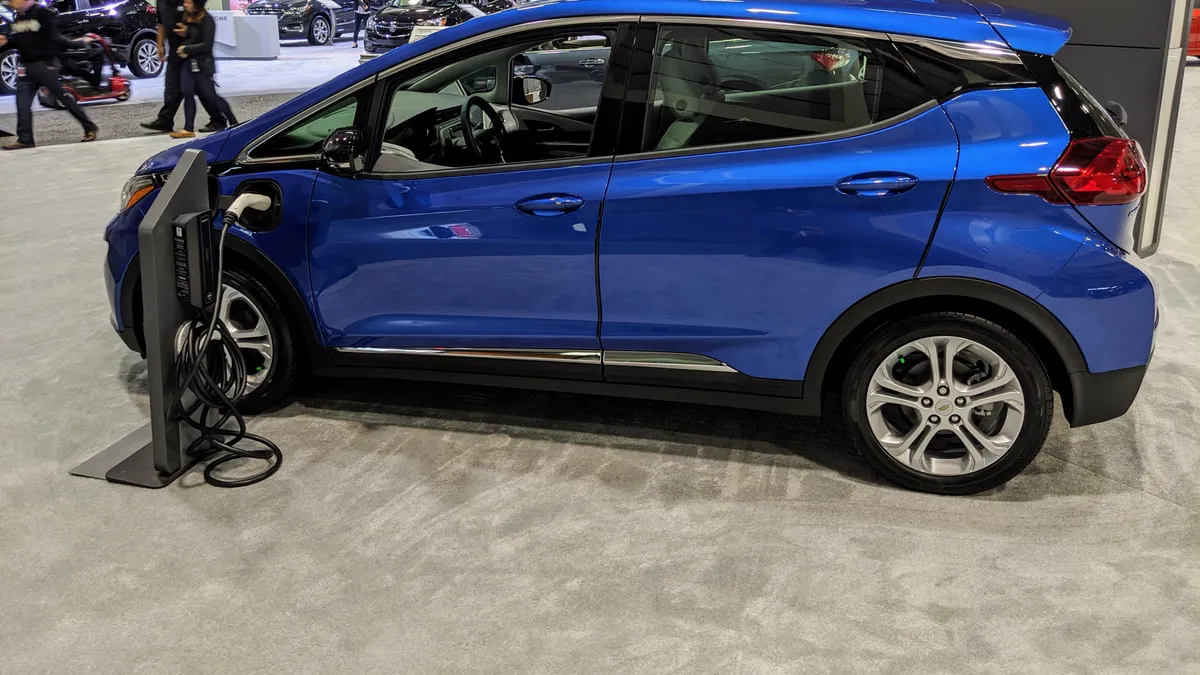Dive Brief:
- New technology and advancements in batteries are helping to get consumers’ range anxiety around electric vehicles (EVs) under control, automakers said Thursday at the Washington Auto Show in Washington, DC.
- Many EV batteries now have a range of 200 miles or more, and are seeing reductions both in price and size in the car, which experts say is a positive step toward getting more people comfortable with the idea of driving an EV. "As we get into vehicles that now have more sophisticated batteries, smaller but provide more energy per unit of density, they have that greater range," Bob Holycross, vice president for sustainability, environment and safety engineering at the Ford Motor Company, told reporters during a tour. "When you talk about 300 miles, and you think about the trips that most people take in a day, that's more than enough."
- Familiarizing more people with EVs is also key to help reduce range anxiety, therefore automakers are prioritizing education, outreach and actually getting consumers into EVs. "If you look at people who haven't had experience of electric cars, they're much more likely to need, in their minds, a range of 300 miles," Mark Gillies, senior manager for product and technologies communications at VW, told reporters.
Dive Insight:
Range anxiety remains one of the biggest barriers standing in the way of greater EV adoption. To get around this, some cities, including Columbus, OH, have looked to partner with dealers on customer education initiatives, and to get dealers’ sales associates up to speed on the latest technology. At the city level, some have waived construction fees for charging infrastructure in a bid to encourage more build-out.
While battery technology appears to be advancing quickly, automakers on Thursday acknowledged there is more to be done to increase charging infrastructure, especially in public places. Partnerships will be key to achieve that, including by opening up access to the public network being installed by Electrify America. "It is going to be all of us working together," Holycross said.
For EV owners, automakers appear to be trying to ease lingering doubts about range through the use of new technology. Ford and Chevrolet talked up their smartphone apps, which can provide information to drivers on long trips about available charging places and metrics on their range.
"It's really about giving folks all the information they need to feel empowered when they get behind the wheel," Kyle Suba, east coast communications lead for Chevrolet, told reporters.
There appears to be a concerted effort to keep pushing new EV technology. At the auto show, U.S. Under Secretary of Energy Mark Menezes announced the Department of Energy (DOE) would invest $300 million in research and development of sustainable transportation resources and technologies. Of that, Menezes said $133 million would be invested in the DOE’s Vehicle Technologies Office (VTO), with advanced batteries just one aspect to be studied.
In a speech at the Washington Auto Show, Menezes said the investment, which also includes money for research on hydrogen use and biofuels, would "further spur innovative breakthroughs in this sector."












